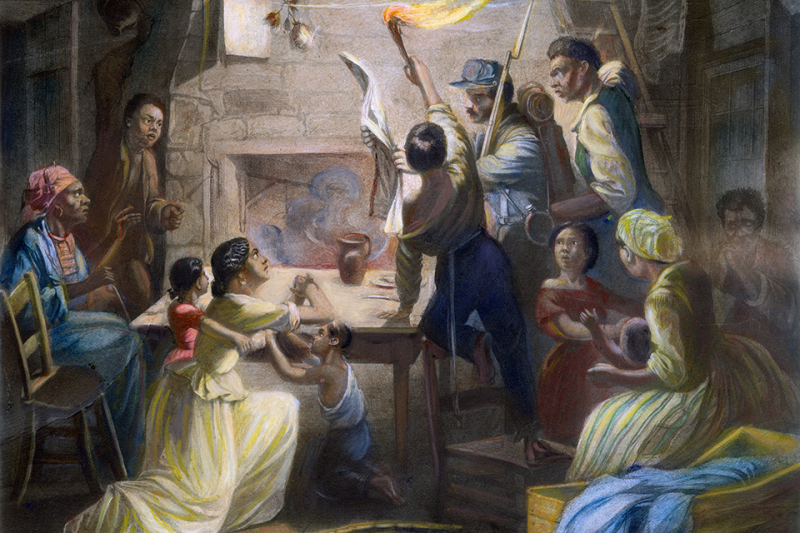The Emancipation Proclamation led the way to total abolition of slavery in the United States.
With the Emancipation Proclamation, the aim of the war changed to include the freeing of slaves in addition to preserving the Union. Black Americans were permitted to serve in the Union Army for the first time, and nearly 200,000 would do so by the end of the war, which contributed greatly to the outcome of the war. However, the Emancipation Proclamation did not end slavery in the nation. The Proclamation applied in the ten states that were still in rebellion in 1863 and thus did not cover the nearly 500,000 slaves in the slave-holding border states that had not seceded. Those slaves were freed by later separate state and federal actions.
Although the Proclamation initially freed only the slaves in the rebellious states, by the end of the war the Proclamation had influenced and prepared citizens to advocate and accept abolition for all slaves in both the North and South. After January 1, 1863, every advance of federal troops expanded the domain of freedom. Therefore, one can say the Emancipation Proclamation paved the way for the permanent abolition of slavery in the United States. There were also many, many smaller events that contributed to abolition. The 13th Amendment, which abolished slavery in the United States, was passed on December 6th, 1865.











